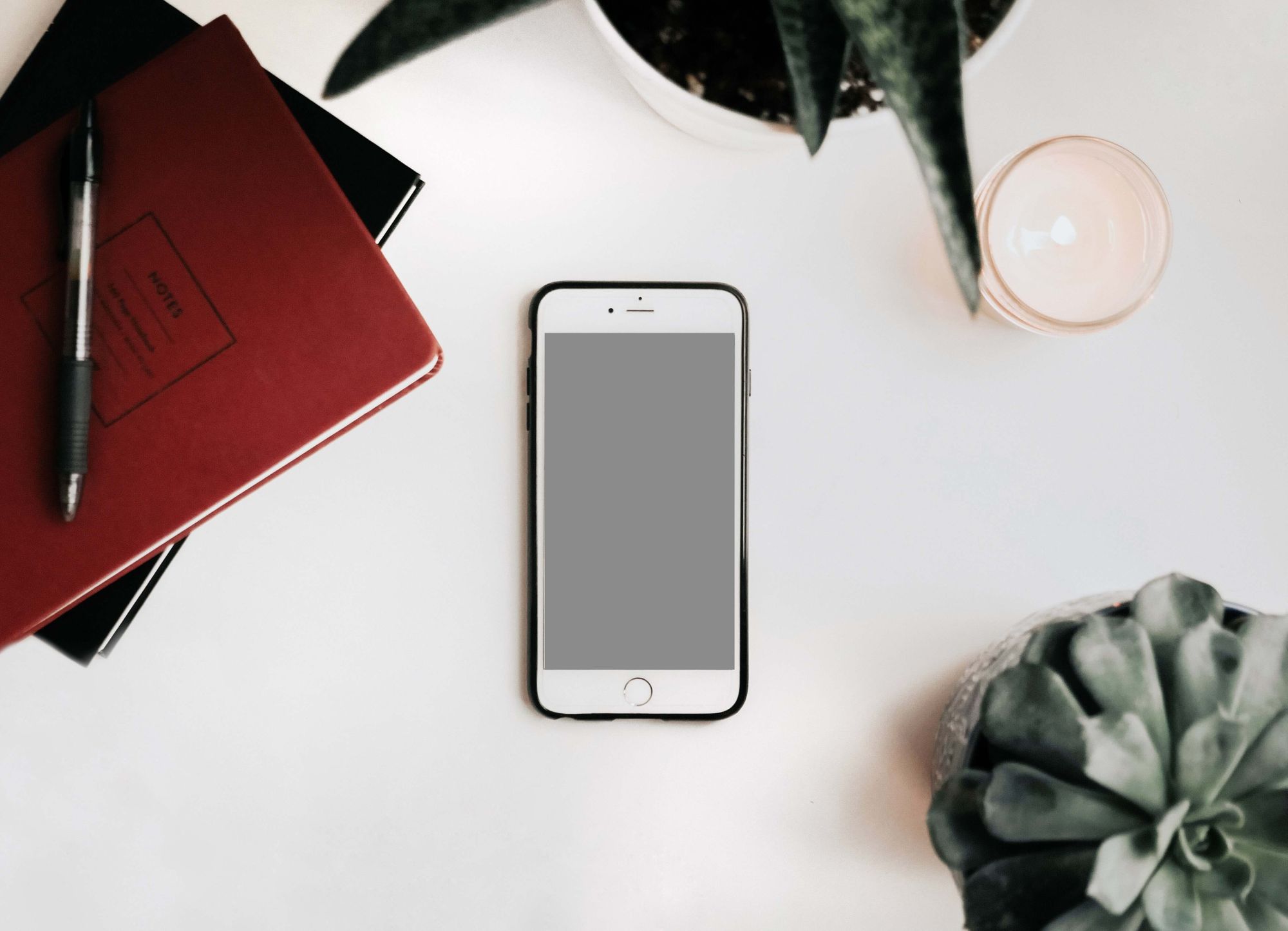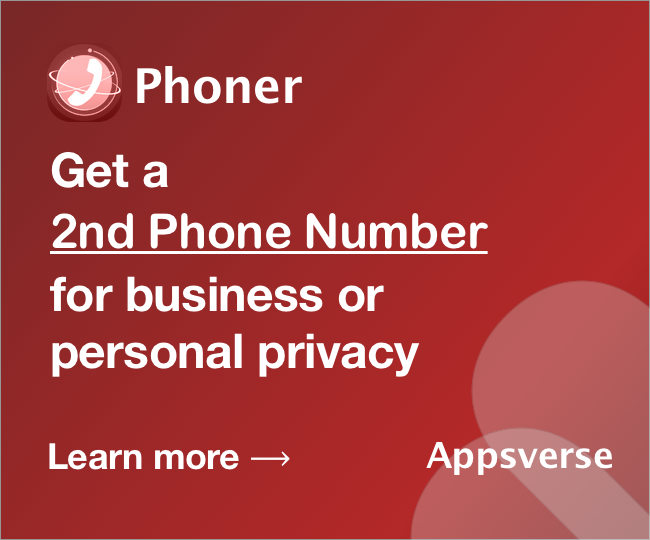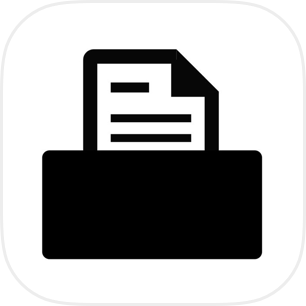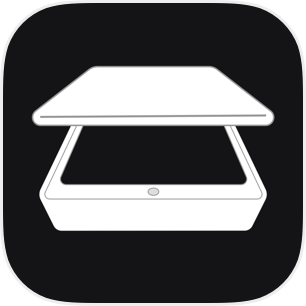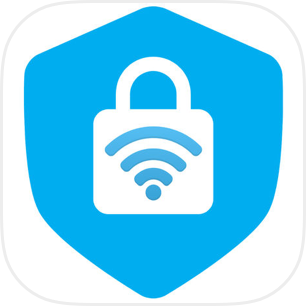As an employee, using personal phone for work might not be a good idea, especially if your phone contains lots of sensitive data.
There’s good reason to use a separate phone for work. In the US alone, almost 45% of companies surveyed by the American Management Association in 1999 already monitored their employees in some way. Workplace surveillance and tracking tools have only become cheaper and more sophisticated since then, and gadgets, like Amazon’s tracking wristbands, now let employers track more than just employee’s browsing histories.
Just as you should not be using personal phone for work, you also shouldn’t be using company phone for personal calls. The converse is intuitive – company property for company matters, and using a work phone for personal use is almost always a big no-no.
Why is using personal phone for work bad for your workplace privacy? Read on to find out why and how protecting your privacy in the workplace by using a separate phone number is important.
Why you should stop using personal phone for work
Reason 1: It keeps your personal life separate from your work life.

People are beginning to wonder if work and life overlaps are really a bad thing at all, but workplace privacy is more than just a state of mind. Using your personal phone for work can open up a whole can of corporate surveillance worms, just as ex-Googler Rebecca Rivers found out for herself. ‘
With the prevalence of mobile phone tracking apps and keylogging software today, protecting your privacy in the workplace keeps your personal life free from workplace interference.
Reason 2: It mitigates or prevents any damage from potential information leaks
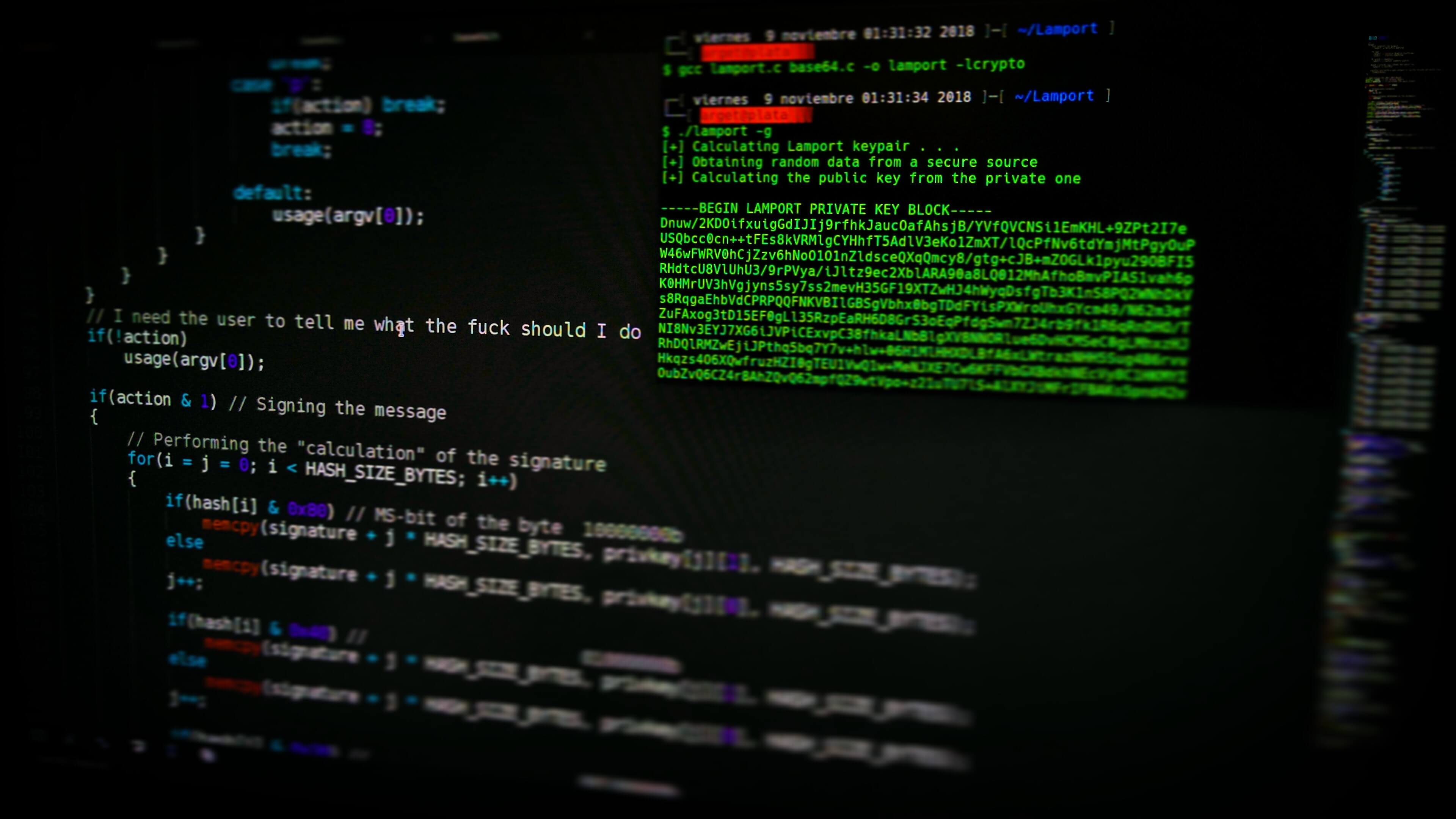
Nearly 4 billion personal records have been stolen by hackers in just the last decade alone, and nearly 61% of companies experienced a cyberattack worldwide between July 2018 to July 2019. This is largely because the bulk of cybersecurity practices are reactive. Hackers do the deed, and cybersecurity then dishes out the response.
As an employee, using personal phone for work may lend you to the risk of exposing personally sensitive data to hackers should your company encounter a cyberattack. When you use a separate phone for work, at least your critical information will not be leaked.
Reason 3: It preserves personal space both physically and mentally.

There has been a good amount of studies that show how workplace surveillance is bad for mental health and turnover rates. Being watched constantly at work has generally also led to unhappy employees with lower self-esteem who tend to “game the system”.
Using personal phone for work actually deprives you of control over your work environment, since work starts encroaching on your personal life literally and figuratively speaking.
You need some breathing space that can help keep your mental and physical health in shape.
Given that employers can now track emails, phone calls, video conferences and even physical locations , workplace privacy is more important than ever. Here are 5 tips you need to know for protecting your workplace privacy beyond not using personal phone for work.
5 workplace privacy tips you should know
Tip 1: Do not leave personal devices lying idle on your desk.
Leaving your personal devices out in the open seems perfectly normal, especially in familiar settings like school or in the office. But that also gives anyone a window of opportunity to infect your devices with spyware – or worse, malware.
This is especially true for laptops given the vulnerability of USB devices. Past cases have shown how USBs can be used by someone to download sensitive data, monitor your every action, remotely control your device, and even turn your device into a malware carrier.
Always store your personal devices in a safe area only you can access, like a personal locker. If not, just bring your personal devices home with you.
Want to check if your laptop has been compromised by spyware? Gizmodo’s how-to guide shows you how to do so, and get rid of them with the right tools.
Tip 2: Use a VPN if you can.
This needs little introduction if you’ve downloaded content outside of proper channels before. VPNs help conceal your online identity and throw prying eyes off your trail.
A word of caution however – a VPN alone may not be enough to keep you safe. Using a VPN also makes you more suspicious towards IT personnel, and depending on what resources they have they can deny the protection a VPN affords. This is particularly true if you’re using it on company-owned hardware.
Tip 3: Always use 2-Factor Authentication (2FA)
We recommended this tip in our previous writeup on protecting yourself from spyware and other surveillance tools, and we still can’t recommend it enough. 2-Factor Authentication is powerful because not only does it ask for something you know; it also asks you for something that (presumably) only you have. Stronger versions of 2FA include biometrics like fingerprints or a voiceprint (making it essentially 3FA).
Tip 4: Keep your passwords fresh and strong.
You don’t need us to send you another password reminder, do you? Changing your password regularly and using passwords that have a combination of numbers, symbols and letters can go a long way in protecting your workplace privacy.
Also, please don’t fall for the cardinal sin of using the same password on every application and device you use. Use different passwords for each, and get a password keychain if you struggle to remember each of them (don’t use the in-built keychain).
Tip 5: Avoid using your personal mobile phone for work matters.
Some companies, like Apple, make use of mobile device management (MDM) applications to separate work apps from personal apps.
These apps do more than just categorise apps however. With the right tools, MDMs can be transformed into spyware that tracks your movement and location.
Even more intimidating is the ability of MDMs to virtually wipe everything on your mobile device. MDMs make sure corporate data isn’t compromised, and companies can use them to wipe your phone clean. When that happens, you lose not only work-related stuff, but your personal content as well.
The only way to save yourself from that potential outcome is to use a separate mobile phone for work matters. Use corporate mobile devices if you have them. If not, we highly recommend getting a second mobile device solely for work.
BONUS TIP: Instead of using personal phone for work, use a second phone number for work matters.
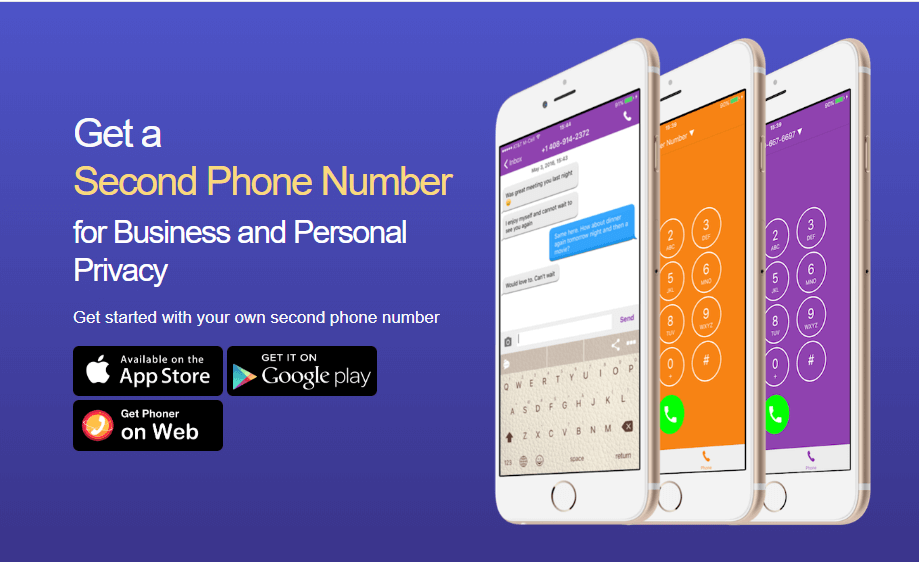
To simplest alternative to not using personal phone for work matters is to get yourself a second phone number with Phoner.
A second phone number essentially hides your true phone number without the need for you to actually get a second phone, or a new SIM card. With Phoner, you can get an unlimited number of phone numbers across different country codes - perfect for keeping your mobile privacy safe!
All you need to do is this.
Step 1: Download Phoner from the Google Play Store or Apple Store.
Phoner is available on both Android and iOS, and is free to download.
Step 2: Get a Premium Number and choose a second phone number.
Open the menu by tapping on the top left icon, and tap on "Get Premium Number". Choose your preferred second phone number, select how long you want to use it for.
Using personal phone for work exposes you to higher privacy risk. Taking steps to do isn't easy, but getting started with hiding your phone number is a great first step. Get Phoner now and grab extra cash on your mobile phone worry-free for less than 10 USD.
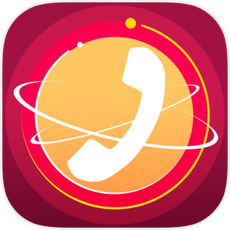
 4.5/5 on App Store
4.5/5 on App Store
